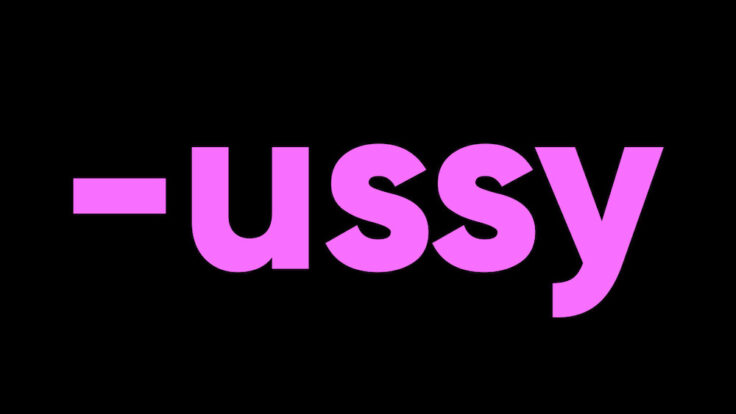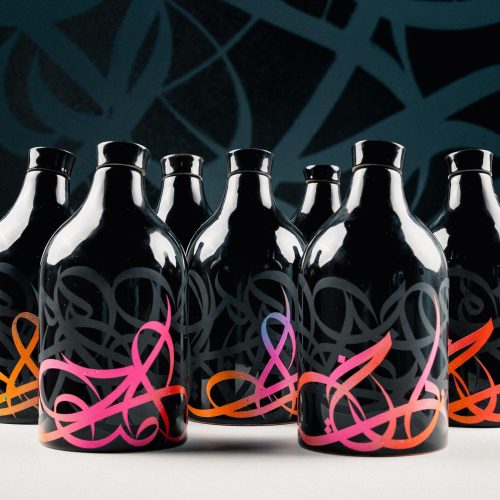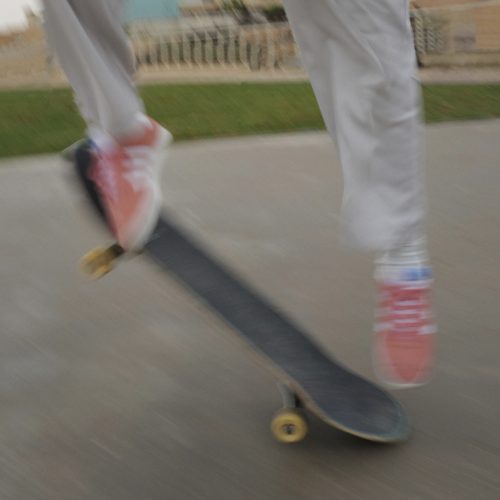In case you needed further proof that we are living in a simulation and nothing is real, “ussy” has been declared as the 2022 Word of the Year by the American Dialect Society (ADS). More than two hundred linguists, historians, researchers, etymologists, editors, scholars, and students took part in the voting, in person and virtually, in a hybrid event hosted in conjunction with the Linguistic Society of America’s 33rd annual meeting to crown the suffix as the top word this year, beating out “Dark Brandon,” “quiet-quitting,” and “rizz.”
“The selection of the suffix -ussy highlights how creativity in new word formation has been embraced online in venues like TikTok,” Ben Zimmer, chair of the ADS New Words Committee said in a released statement. “The playful suffix builds off the word pussy to generate new slang terms. The process has been so productive lately on social media sites and elsewhere that it has been dubbed -ussification.”
Short lingussy lesson: -ussification is the practice of adding “ussy” to the end of every word, adding humor to any phrase or noun. Riffing off “bussy” (a portmanteaux of “boy” and “pussy”), the origin of the trend dates back to 2017 during the Tumblr era when a user called @earthnation coined the word “thrussy” in reference to his throat. Since then, we’ve seen everything and anything on the Internet be -ussified. Like most words in the English language, the suffix has evolved, and now is also used to indicate giving something your all— For example, last year, someone Tweeted “Zendaya put her whole zendussy into this role” after an episode of Euphoria aired. I’ve even seen people on TikTok say that Tchaikovsky put his Tchaikovskussy into Swan Lake.
My ancestors trying to stop me from adding “-ussy” to my 10th noun of the day pic.twitter.com/B5t3MPEjK3
— Deku (@DpsDeku) December 29, 2022
Not only does the popularity of the suffix reflect a general meme-ification of language propelled by the chronically-online, but also reveals the influence of the Black (and Black queer) community to the English language. “Ussy” is one of the handful of linguistic contributions made by the marginalized community, in addition to other words that exist in African American Vernacular English (AAVE) like “slay,” “bussin’,” and “finna,” which have since been co-opted by others thanks to social media and the age of rapid information sharing.
Meanwhile, the concept of marginalized people developing their own means of communication is by all means not a new linguistic phenomenon. Queer people have developed turns of phrases to communicate with each other in potentially dangerous and homophobic settings for decades. In the first half of the twentieth century, when homosexuality was illegal, gay men in the UK spoke Polari, a language that offered its speakers a means of disguise and identification. Similarly, the earliest forms of AAVE are said to have originated in the plantations of the American South by enslaved African people.
Today, there exists a shared lexicon of words and phrases, some which have fallen out of use while others have emerged and even taken on new meanings. And, as the 21st century gave way to the advent of the Internet, the dispersion of AAVE and queer slang has accelerated and become more mainstream and widespread. Combined with the rise of social media, language is constantly transforming (remember when OOMF was an acronym and now it’s a noun?), changing the way we communicate. Every year, hundreds of new words and phrases that come from Internet slang are added to the dictionary, like FOMO (fear of missing out). At this point, the World Wide Web is the most prevalent influence on our day-to-day lexicon, and whether you believe that the Internet is revitalizing or destroying our vocabulary, there’s no denying that the rapid evolution of language is wildly fascinating.









